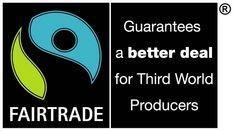
A global consumer survey on Fairtrade shows that shoppers increasingly expect companies to be more accountable and fair in dealing with producers in developing countries.
The survey has demonstrated that support for Fairtrade is on the rise ahead of World Fair Trade Day on May 9.
The survey by GlobeScan was commissioned by Fairtrade Labelling Organisations International (FLO), of which the Fairtrade Foundation is the UK member, with a sample size of 14,500 in 15 countries.
Among those surveyed, almost three-quarters of shoppers believe it is not enough for companies to do no harm, but that they should actively support community development in developing countries.
‘Active ethical consumers’ make up more than half of the population (55 per cent) in the countries surveyed. These shoppers have higher expectations of companies’ social, economic and environmental responsibilities.
According to their shopping habits and decisions, Fairtrade claims customers tend to reward (or punish) companies that meet (or do not meet) their expectations, and they influence others with their opinions.
These attitudes are fuelling support for Fairtrade as more consumers identify with its values. Half of the public in the 15 countries surveyed are now familiar with the Fairtrade Certification Mark, or in North America the Fair Trade Certified label. Of these people, nine out of ten (91 per cent) trust the label. Some 64 per cent of all consumers believe that Fairtrade has strict standards, a quality that also closely correlates to consumer trust. Almost three-quarters of shoppers (72 per cent) believe independent certification is the best way to verify a product’s ethical claims.
These levels of awareness and trust are consistent with people’s action, as sales indicators show more people are shopping for Fairtrade. Sales were up in 2008 by 57 per cent in Finland, by 22 per cent in France, by 75 per cent in Sweden, by 43 per cent in the UK and by 10 per cent in the US, compared to 2007.
Even where the rate of growth has slowed, sales have not fallen back in any country. In these tough economic times, the vast range of Fairtrade-certified goods and wider availability means that consumers can still remain loyal to Fairtrade even while switching to other brands.
Rob Cameron, ceo of FLO, said: “With the devastating impacts of the global recession and the credit crunch, producers need Fairtrade now more than ever. It is very encouraging that consumer commitment to Fairtrade remains strong in these challenging times. We are indebted to the grassroots movement that has built up solid support for Fairtrade. As a result of their efforts, global brands see Fairtrade as an important part of their strategy for the future. We are working with both the grassroots movement and companies to increase the market, so that more producers will benefit from the better deal that Fairtrade offers.”
Estimated retail sales of Fairtrade products in the UK topped £700m for the first time in 2008.



